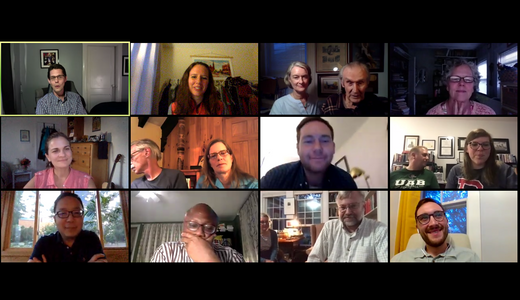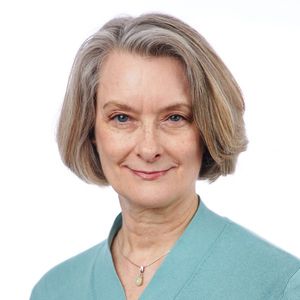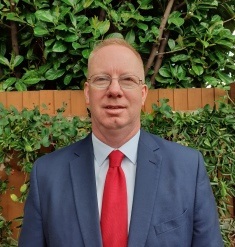News of the extended network of faculty, alumni, students, visiting researchers, and mission partners is regularly updated, and some of the big ideas or major events in Global Christianity are covered in the CGCM News.
Former Missionary in Residence Laments Severe Flooding in Niger

Joel Gray, a former Missionary in Residence with the CGCM, describes devastating flooding in Niamey, Niger. Joel and his wife Karen evacuated their home at the end of August, and had to evacuate again at the beginning of September. They write,
Thousands of people in Niamey have lost their houses and their food. Our places of ministry, Sahel Academy and ESPriT Bible School, are completely under water. Some city streets are impassable and traffic for many people has become an increasing challenge....For two weeks we worked in teams to salvage furniture and equipment. Teams wadded into sometimes neck-high water...other teams drive the furniture and school equipment to dry places around town to wash, dry, and fight back mold.
Call for Submissions: Dictionary of Pentecostal Missions
Robert Gallagher (Wheaton College), Jerry Ireland (University of Valley Forge), and Paul W. Lewis (Assemblies of God Theological Seminary) are organizing a Dictionary of Pentecostal Missions, to be published with T&T Clark.
The editors have already assembled a list of entries to be included, though they are also open to suggestions for other articles as well. See their submission guidelines here.
If you are interested in contributing, email the editors and include your CV or qualifications (robert.gallagher@wheaton.edu, jerry.ireland00@gmail.com, DHPerdan@valleyforge.edu).
Jesudas Athyal on Christian Proselytization and Question of “Success” in India
 Dr. Jesudas Athyal, Acquiring Editor in World Christianity for Fortress Press and former CGCM visiting researcher, is engaging in public debate about the role of proselytization in Indian Christianity. His recent article, "Christianity Hasn't Failed in India. Conversion Isn't Its Only Goal," published in The Print, argues that Christianity's success in India today cannot be measured by statistics alone. He argues that conversion was in many cases not the explicit goal of missionaries, many of whom wanted to live alongside people, support work for social improvement, and witness to their faith through strategies of "permeation" rather than proselytization. Athyal also points to the ways that persecution and multiple religious belonging can skew demographic data on religion.
Dr. Jesudas Athyal, Acquiring Editor in World Christianity for Fortress Press and former CGCM visiting researcher, is engaging in public debate about the role of proselytization in Indian Christianity. His recent article, "Christianity Hasn't Failed in India. Conversion Isn't Its Only Goal," published in The Print, argues that Christianity's success in India today cannot be measured by statistics alone. He argues that conversion was in many cases not the explicit goal of missionaries, many of whom wanted to live alongside people, support work for social improvement, and witness to their faith through strategies of "permeation" rather than proselytization. Athyal also points to the ways that persecution and multiple religious belonging can skew demographic data on religion.
Dr. Athyal closes his article noting the inconsistency of those who would blame Christianity for making little headway in India but who would agree with anti-conversion laws that violate religious freedom. He ends by saying, "A propaganda has been unleashed on several levels to present Indian Christianity as a failed project. However, the arguments that could convince the faithful may not stand scholarly scrutiny."
Phillip Jenkins recently highlighted Athyal's arguments in an article on the blog The Anxious Bench, where he urges greater recognition of the pressures faced by Christians in India today.
Dr. Athyal is also a co-author of Understanding World Christianity: India (Fortress, 2016), with Dyron B. Daughrity, as well as many articles in the field of World Christianity.
A New Beginning: CGCM Annual Gathering Goes Virtual
 Typically, students and faculty in the history of Christianity and mission studies gather at Professor Robert's house for a meal and conversation at the opening of the school year. This year, the CGCM switched to a virtual format, hosing a "mocktail" party via Zoom!
Typically, students and faculty in the history of Christianity and mission studies gather at Professor Robert's house for a meal and conversation at the opening of the school year. This year, the CGCM switched to a virtual format, hosing a "mocktail" party via Zoom!
We are excited to welcome new doctoral students in historical and liturgical studies this semester. Thanks to Daryl Ireland and Dana Robert for "hosting" our gathering this year!
Michele Sigg Named DACB Executive Director
 Congratulations to Dr. Michèle Sigg, who has recently been appointed the Executive Director of the Dictionary of African Christian Biography (DACB). Formerly, she had been serving as Associate Director of the DACB, and she also serves as Editor of the Journal of African Christian Biography (JACB).
Congratulations to Dr. Michèle Sigg, who has recently been appointed the Executive Director of the Dictionary of African Christian Biography (DACB). Formerly, she had been serving as Associate Director of the DACB, and she also serves as Editor of the Journal of African Christian Biography (JACB).
Dr. Sigg has written several articles on women in African Christianity. She is also contributing a chapter on women’s spirituality in Sixteenth-Century Mission: Global Mission in the Age of Reformations (2021), and an entry on “Christianity in Lesotho” in the Oxford Dictionary of the Christian Church (2020). She is also working on a monograph on French Protestant women and mission (2021).
Read her full biography here, and visit the DACB to see some of the most recent stories, which include biographies of several Angolan Protestant ministers, the Ghanaian oral theologian Afua Kuma, and the Catholic theologian Charles Nyamiti.
Call For Abstracts: Workshop on Forced Migration & Human Trafficking

The Pardee Initiative on Forced Migration and Human Trafficking, located at Boston University, is issuing a call for abstracts for their upcoming workshop, Mobility, Time and Political Possibilities. The workshop is year-long, running from early 2021 and culminating in an in-person event in early 2022. The group envisages a small but committed group of scholars meeting monthly, in camera, to share and critically engage each other's work-in-progress on a rotating basis. Their aim is to produce a provocative interdisciplinary edited volume or special issue, via a collaborative process.
The workshop is convened by Noora Lori of Boston University, Anne McNevin of the New School for Social Research, and Loren B. Landau of the University of Oxford & Witwatersrand.
See the call for abstracts here.
Conference Honoring the Philosophy of Nimi Wariboko

On November 21, Boston University and the University of Texas at Austin are hosting an online conference on "The Philosophy of Nimi Wariboko," covering the major themes of ethics, economy, society, religion, and African social traditions. A prolific author and thinker, Dr. Wariboko is the Walter G. Muelder Professor of Social Ethics at Boston University, as well as a faculty associate at the CGCM.
The conference celebrates a collection of essays on Wariboko's thought, edited by Toyin Falola, who holds the Jacob and Frances Sanger Mossiker Chair in the Humanities at UT Austin. The collection, The Philosophy of Nimi Wariboko: Social Ethics, Economy, and Religion, will be published by Carolina Academic Press in November.
Conference speakers include Mark Lewis Taylor (Princeton Seminary), Femi Vaughn (Amherst College), and Ebenezer Obadare (University of Kansas).
Paper submissions are welcome in any of the following areas: economic ethics, economic philosophy, social ethics, pentecostal studies, philosophical theology, African religions, and African social traditions. Submissions are due by September 30.
The conference will take place from 5am-9pm (Eastern Standard Time), to accommodate the range of time zones represented by participants.
See further information on Wariboko's thought, the conference, and proposal submission here.
Contact Anna Lee Carothers (annalee.carothers@utexas.edu) with any questions.
Dana Robert to Deliver Public Address: “The Promise of Fractured Fellowship”
 On September 9th, Dana Robert will deliver a public convocation address at Garrett-Evangelical Theological Seminary. The lecture, "The Promise of Fractured Fellowship: Lessons from 1920," will explore how a century ago, in the wake of world war, the flu pandemic, and the ongoing injustice of colonialism, Protestants pursued friendship and fellowship. Widespread destruction made urgent the pursuit of unity. The fractured fellowship of 1920, and efforts to overcome it, provides relevant insights for 2020.
On September 9th, Dana Robert will deliver a public convocation address at Garrett-Evangelical Theological Seminary. The lecture, "The Promise of Fractured Fellowship: Lessons from 1920," will explore how a century ago, in the wake of world war, the flu pandemic, and the ongoing injustice of colonialism, Protestants pursued friendship and fellowship. Widespread destruction made urgent the pursuit of unity. The fractured fellowship of 1920, and efforts to overcome it, provides relevant insights for 2020.
The address will take place via Zoom at 4pm (central time). Attendance is open to all, but registration is required.
Alumnus Named Director of Practical Theology and Mission at Westcott House
 The Rev. Dr. Julian Gotobed ('3, '11) has been named Director of Practical Theology and Mission at Westcott House, an Anglican theological college in Cambridge, England. Prior to this appointment, Dr. Gotobed served as Senior Lecturer at the University of Roehampton.
The Rev. Dr. Julian Gotobed ('3, '11) has been named Director of Practical Theology and Mission at Westcott House, an Anglican theological college in Cambridge, England. Prior to this appointment, Dr. Gotobed served as Senior Lecturer at the University of Roehampton.
Gotobed completed his PhD dissertation, "Living with Jesus: Practical Christologies in Two Boston American Baptist Churches," in 2011 under the direction of Dean Bryan Stone and Dr. Nancy Ammerman.
Congratulations to Dr. Gotobed for taking on this new position!
Overseas Ministry Study Center (OMSC) Fall Online Events
Due to the pandemic and the difficulty of international travel, the Overseas Ministry Study Center (OMSC), located at Princeton Theological Seminary, will be offering many online events during the fall 2020 semester. The first online seminar will be jointly-led by Professors Andrew and Ingrid Walls on September 15-17.

CGCM Director Dana Robert will be speaking at a "Meet the Author" event to describe her recent book Faithful Friendships on December 10th.

CGCM Associate Director Daryl Ireland will be leading a webinar exploring the Chinese Christian Posters Project on November 12.